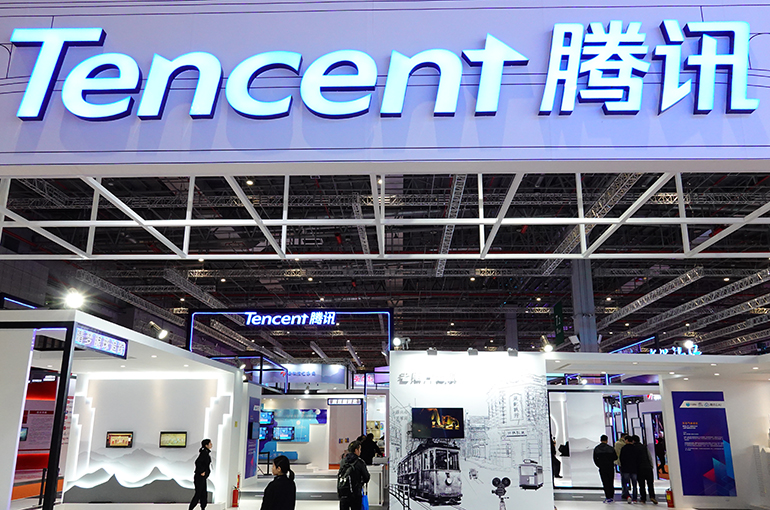 Tencent Cloud Is Now Fully Compatible With All Major China-Made Chips, Top Exec Says
Tencent Cloud Is Now Fully Compatible With All Major China-Made Chips, Top Exec Says(Yicai) Sept. 16 -- Tencent Cloud’s heterogenous computing platform, which integrates a wide range of chips to deliver artificial intelligence computing power to the world, has now been fully adapted to support all mainstream domestic chips, the president of Chinese internet giant Tencent's cloud services arm said.
“Graphics processing unit-based computing resources are becoming increasingly heterogenous, and many domestic chips are catching up quickly in terms of performance,” Qiu Yuepeng, who is also vice president of Tencent, said at the 2025 Tencent Global Digital Ecosystem Summit today.
Heterogeneous computing refers to the use of different types of chips together, with each handling the tasks it is best at, to achieve higher computing efficiency.
China’s homegrown chip development has been accelerating in recent years. On one hand, tighter export restrictions overseas have pushed Chinese companies to actively seek local alternatives. On the other hand, domestic chip technology has been steadily improving, making it possible for them to replace foreign chips. In this context, Tencent Cloud’s move is seen as a big step forward.
Cloud service providers continue to use a variety of chips for computing power, Liu Lihui, research director at market research firm IDC China, told Yicai. Although they still use foreign chips, these firms are also putting a greater focus on developing their own chips, or they are testing and learning how to become more compatible with domestic chips. China-made GPUs should take a bigger share of the market this year, he added.
Tencent has been spending heavily to quickly build computing power in order to support both internal product development and customer demand, said Li Qiang, vice president of Tencent and president of its government-enterprise business.
The Shenzhen-based company’s capital expenditure amounted to CNY83.1 billion (USD11.4 billion) from the fourth quarter of last year to the second quarter of this year. But when resources are limited, efficiency becomes critical, he said.
“Tencent has invested heavily in research and development to improve computing efficiency. GPUs are just one part of it, but there are many other aspects such as storage and communication. For example, our Xingmai Network can boost communication efficiency nearly 10-fold. When clusters reach thousands or tens of thousands of chips, these improvements make a huge difference,” Li said.
Better AI infrastructure translates into better cost efficiency. However, cloud services providers have strong capital resources and ultimately they will compete on technology rather than costs, Li added.
The upgrading of AI infrastructure will also help speed up the rollout of AI agents, Qiu said. By 2028, about one-third of business software will incorporate AI agents and China’s corporate AI agent market could top USD27 billion, he added.
Editor: Kim Taylor